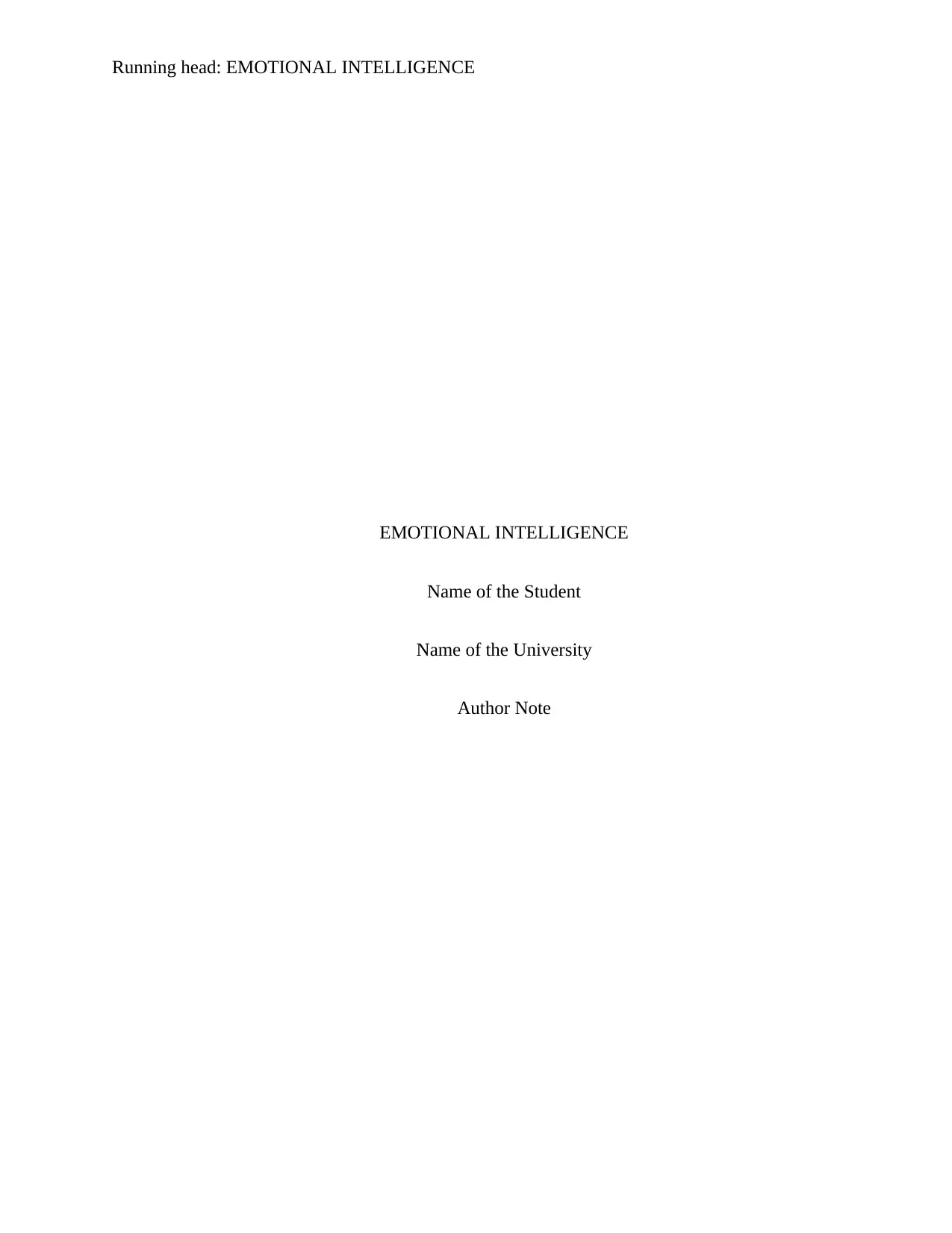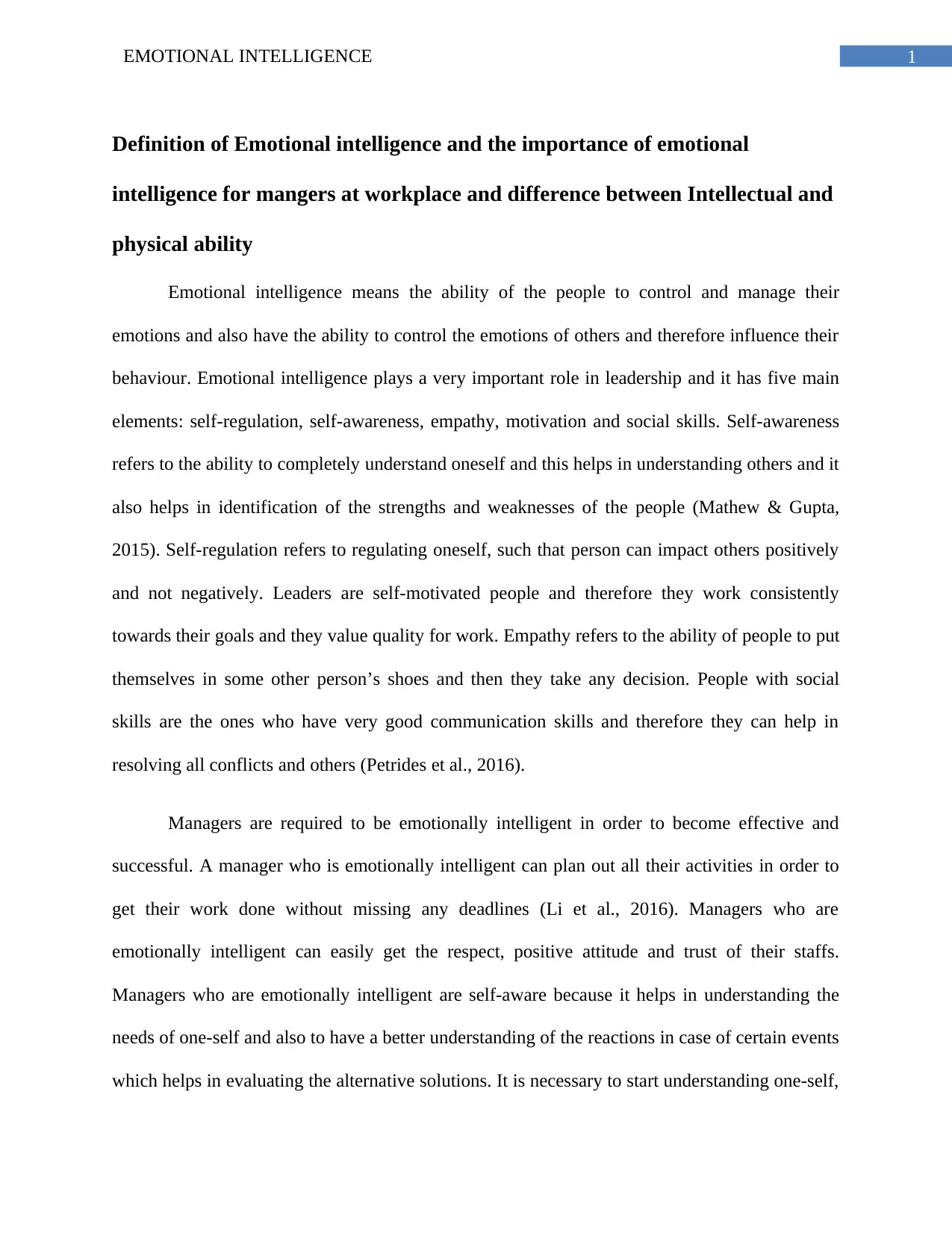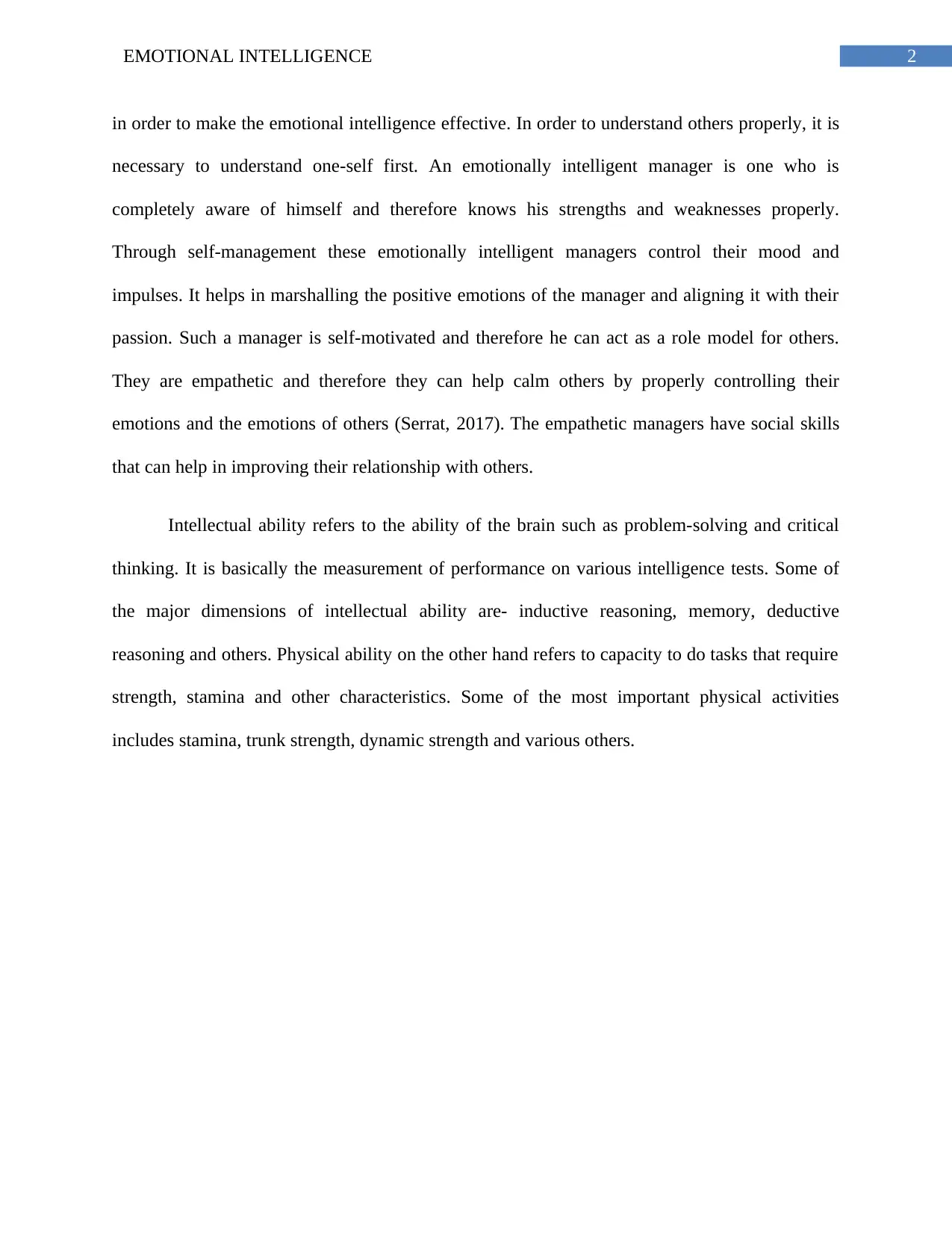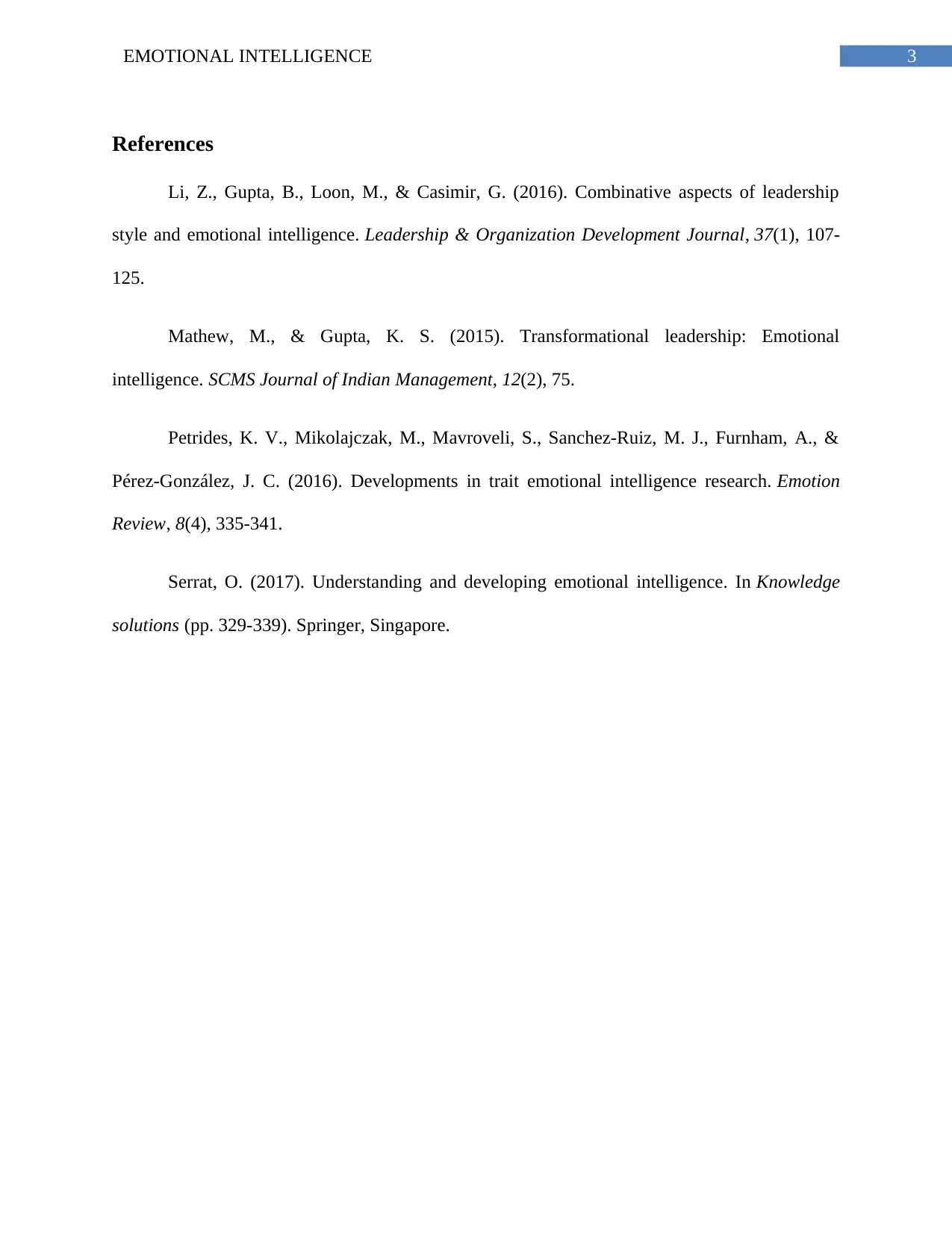Emotional Intelligence and Leadership Report - University
VerifiedAdded on 2022/10/18
|4
|713
|43
Report
AI Summary
This report delves into the concept of emotional intelligence (EI), defining it as the ability to manage one's own emotions and influence others' feelings, a crucial skill for effective leadership. It emphasizes the five core elements of EI: self-awareness, self-regulation, motivation, empathy, and social skills, highlighting their importance for managers to plan, gain respect, and build trust. The report outlines how emotionally intelligent managers utilize self-awareness to understand their strengths and weaknesses, self-management to control impulses, and empathy to connect with others. Furthermore, it contrasts EI with intellectual ability, which involves problem-solving and critical thinking, and physical ability, which encompasses strength and stamina. The report underscores the practical applications of EI in the workplace, emphasizing its role in improving communication, resolving conflicts, and achieving goals.
1 out of 4










![[object Object]](/_next/static/media/star-bottom.7253800d.svg)